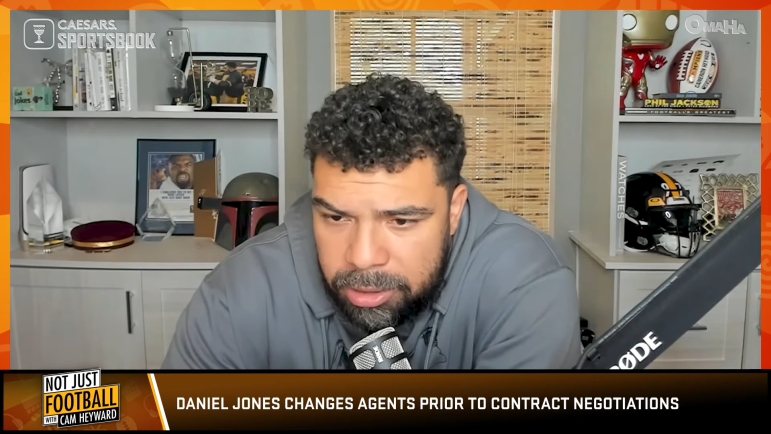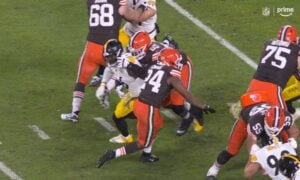I wouldn’t guess that the Pittsburgh Steelers utilize the franchise tag more than average. They will, however, use it when they believe it is appropriate to help them pursue a long-term deal with a player.
They most notably used the tag two years in a row with running back Le’Veon Bell and negotiated with him in good faith throughout the allotted time in both years. Bell opted not to play in the second season, somewhat infamously.
They did use the franchise tag on outside linebacker Bud Dupree after that, and also failed to re-sign him the following offseason. With the tag window now open, it’s exceedingly unlikely they will use it or the transition tag on anybody. And team captain and NFLPA representative Cameron Heyward is glad.
“I hate the franchise tag”, he said on the most recent episode of his Not Just Football podcast. “You put a guy on a one-year contract and if he gets hurt, he’s screwed. Why is it even allowed for a guy who played at the top of his game, he’s only guaranteed one contract?”.
Heyward has never had to grapple with the franchise tag. As a first-round pick in 2011, he signed a five-year contract extension in 2015, and then a four-year extension in 2020. He still has two years left on his current contract and has never come close to facing free agency in his 12 years.
But he’s watched a number of teammates and players from other teams go through it. He watched Dupree tear his ACL toward the end of his franchise year. It still worked out for him, arguably, at least in terms of initially signing a lucrative long-term deal in spite of the knee injury, but not every player is as fortunate.
“These guys have outplayed their contracts. They are worthy of more money”, Heyward said. But it is also worth pointing out that in many cases, perhaps most, teams apply the franchise tag to players with whom they intend to buy time to sign a long-term deal. That is the method the Steelers almost universally employ.
Many players have spoken against the franchise tag, so Heyward is not blazing any new trails here. The NFLPA has often opposed it, but because it affects such a small percentage of players and it would require them to give up something else to get rid of it, its elimination has never really been seriously broached during Collective Bargaining Agreement discussions.
In other words, the franchise tag probably isn’t going anywhere for a while. Not all players oppose it, though. Some have been able to use the system to cash in for a year or two, betting on themselves and their performance, to earn an even bigger contract against a bigger salary cap.
Still, Heyward argued that players would always opt for longevity (and thus security) in their guaranteed pay as their top priority. There has been a big trend in that direction—the only reason that Bell never worked out a deal with the Steelers. The franchise tag generally pays well, but not for long.








